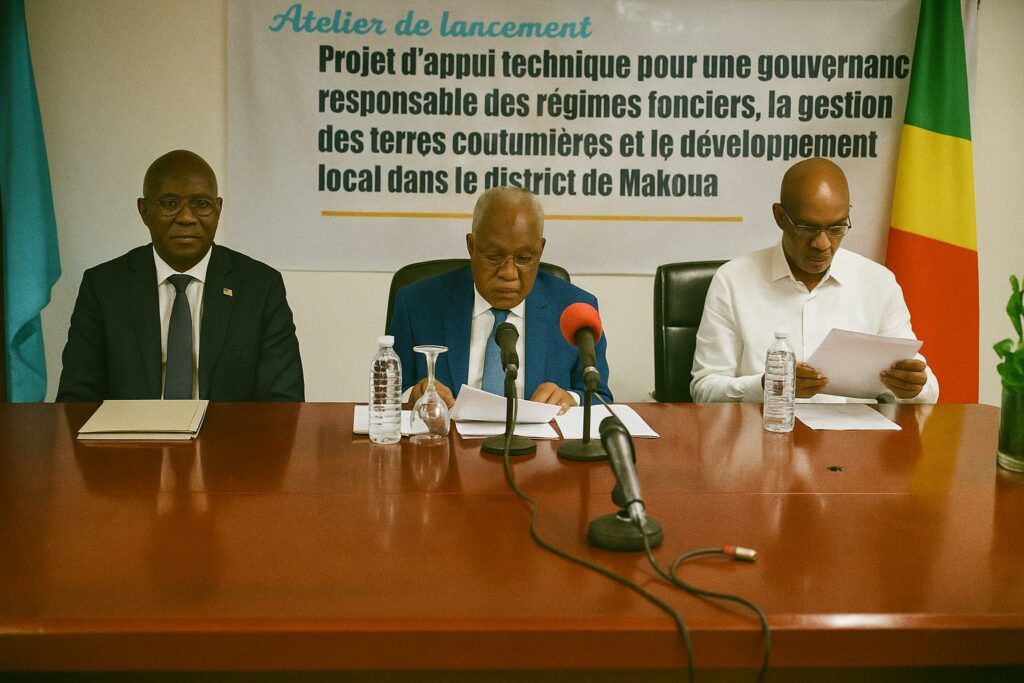Revitalizing Land Management in Makoua: A Collaborative Venture
In a keen move to bolster land management frameworks, an FAO-financed initiative commenced in Brazzaville on June 20th. The project, aimed at refining land governance, targets the indigenous land structures within Makoua district, part of the Cuvette Department. The launch heralds a collaborative effort emphasizing capacity-building among stakeholders, aligning with the voluntary guidelines on land tenure, and situating Congolese land policies within a broader African context.
Innovative Approaches to Customary Land Use
The project unfolds across four principal vectors, notably including a diagnostic assessment of the prevailing land situation, placing particular emphasis on the distinct legal status of family-owned lands among non-indigenous populations. It seeks to create a sustainable model for the productive use of customary lands. Through innovative approaches in Makoua, these efforts endeavor to mobilize necessary resources, fueling the local development engine.
Budget and Support Dynamics of the FAO Initiative
With an investment pegged at $225,000, or approximately 130 million FCFA, the FAO’s technical support strives to elevate land governance standards within the Republic of Congo. Echoing the FAO’s commitment, representative Dadémonao Pissang Tchanga reaffirmed their dedication to assisting the Congolese government and local development agents in maximally utilizing the project gains for wider national benefit.
Challenges and Aspirations for Land Governance
Despite tangible progress in land reforms, particularly in establishing a legal framework to secure access to customary lands, significant challenges endure. The integration of modern and traditional land tenure systems into policies and legislation represents a complex, long-term endeavor. The project’s wider ambition is to elevate Makoua’s governance framework into a beacon of community-driven development.
Stakeholder Engagement and Future Directive
Jean Roger Osseté, representing the family land-ownership association AFTO, commended the project’s significance for Congolese socioeconomic advancement. He emphasized how the initiative lays the groundwork for incorporating local families’ customary lands into the nation’s prosperity formula, with substantial involvement from the Ministry of Urban Sanitation and Local Development.
Strategic Policy Alignment and Future Vision
Antoine Mapangui, the chief of staff at the Ministry of Local Development, affirmed the project’s alignment with the strategic directives of the Congolese presidency. These include territorial planning, leveraging local resources, and fostering inclusive, harmonious development. Emphasizing a multifunctional partnership approach, the project encapsulates a dual mandate of reinforcing local land governance while achieving community resilience and improved living standards.

